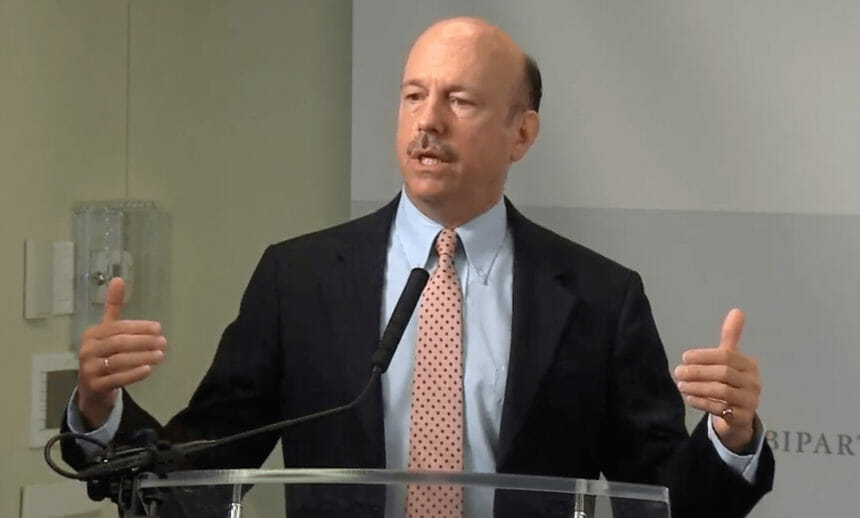
Two reports issued Thursday focus on ways the Centers for Medicare & Medicaid Services can offer nonmedical supplemental benefits to chronically ill enrollees.
In one report, “Guiding Principles for New Flexibility Under SSCBI,” a group of 30 industry leaders convened by Anne Tumlinson Innovations and the Long-Term Quality Alliance, with funding from the SCAN Foundation, offers a five-point consensus framework on how new supplemental benefits in Medicare Advantage available next year can best meet consumer needs while being sustainable over time. The points include ensuring that special supplemental benefits for the chronically ill are clear and understandable, equitable, management and sustainable, able to evolve with continuous learning and improvement, and, most importantly, reflect individual needs.
“It represents such a broad range of perspectives,” Bruce Chernof, M.D., president and CEO of the SCAN Foundation, told McKnight’s Senior Living, describing the report. “It’s a really good document to go to CMS with and say, ‘This is what it means to implement successfully. So as you all think about regulatory guidance and whatnot, here’s a framework to think about what it’s going to take to help all of us, collectively, implement well.”
He encouraged senior living and care providers to be “actively involved” during this “transformative moment.”
“This is a good time for organizations to take stock of who they are, to have an opinion about the future of the services they offer and the family of providers that they share responsibilities with,” Chernof said.
Nicole Fallon, vice president of health policy and integrated services at LeadingAge, and Marc Cohen, co-director of the LeadingAge LTSS Center @UMass Boston, were two of the 30 people convened to develop the framework.
“We felt it was important to contribute to this multi-stakeholder effort to see that all opportunities are given to ensure these benefits are successfully implemented,” Fallon told McKnight’s Senior Living. “The SSBCI and other supplemental benefit flexibilities now afforded to the MA plans are important steps toward integration and acknowledging that a person needs more than medical care to improve and maintain their health and wellness. We hope that successful implementation of these benefits through MA plans will ultimately pave the road to these benefits being made available for all Medicare beneficiaries in the future,” she added.
Nonetheless, Fallon said, operators “must be realistic about the limits of these benefits,” since they are supplemental benefits rather than standard benefits.
But “[s]enior living organizations who are also pursuing becoming an MA plan or Special Needs Plan are probably best positioned to offer these new supplemental benefits, as they have seen firsthand the positive impact these services can have on an older adult’s health and wellbeing,” she said.
Another report, “Next Steps in Chronic Care: Expanding Innovative Medicare Benefits,” released by the Bipartisan Policy Center, aims to “create a fiscally responsible pathway for covering nonmedical benefits in Medicare fee-for-service,” not just in Medicare Advantage plans as allowed by law beginning in 2020, said Katherine Hayes, BPC health policy director.
Two-thirds of Medicare beneficiaries are covered by traditional fee-for-service plans rather than Medicare Advantage plans.
“Three in four Americans over age 65 are living with multiple chronic conditions,” Hayes said. “Given the high percentage of Medicare beneficiaries with chronic conditions, Congress should extend these benefits to those in Medicare fee-for-service and put safeguards in place to ensure the services are evidence-based, targeted and do not result in an increase in beneficiary cost-sharing, premiums or additional costs to taxpayers.”
The report recommends that CMS be given greater authority to integrate services for dually eligible Medicare / Medicaid beneficiaries, that Bipartisan Budget Act of 2018 provisions be improved to allow Medicare Advantage plans to offer special supplemental benefits for people with chronic illness, and that care for Medicare beneficiaries with chronic conditions who have traditional fee-for-service plans be improved through accountable care organizations, primary care models and chronic care management.
The BPC report also was supported by the SCAN Foundation as well as the Commonwealth Fund.



